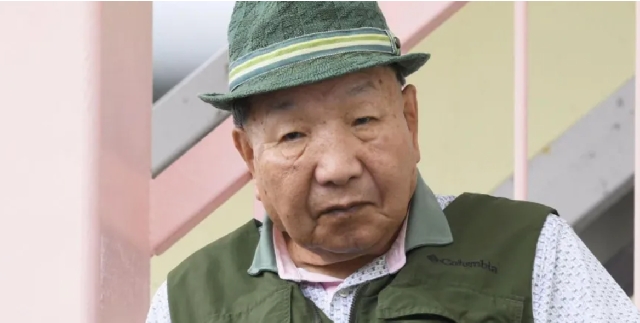World's longest-serving death row inmate acquitted in Japan
 Iwao Hakamada
Iwao Hakamada
An 88-year-old man who is the world’s longest-serving death row inmate has been acquitted by a Japanese court, after it found that evidence used against him was fabricated.
Iwao Hakamada, who has been on death row for more than half a century, was found guilty in 1968 of killing his boss, the man’s wife and their two teenage children.
He was recently granted a retrial amid suspicions that investigators may have planted evidence that led to his conviction for quadruple murder.
More than half a century spent on death row has taken a heavy toll on Hakamada's mental health, though, meaning he was unfit to attend the hearing where his acquittal was finally handed down.
Hakamada's case is one of Japan's longest and most famous legal sagas, and has attracted widespread public interest, with some 500 people lining up for seats in the courtroom in Shizuoka on Thursday.
As the verdict was handed down, Hakamada’s supporters outside the court cheered “banzai" - a Japanese exclamation that means "hurray".
Hakamada, who was exempted from all hearings due to his deteriorated mental state, has been living under the care of his 91-year-old sister Hideko since 2014, when he was freed from jail and granted a retrial.
He previously told the AFP news agency that his battle for justice was like "fighting a bout every day".
"Once you think you can't win, there is no path to victory," he said.
'Bloodstained' clothes in a tank of miso
A former professional boxer, Hakamada was working at a miso processing plant in 1966 when the bodies of his employer, the man’s wife and two children were recovered from a fire at their home in Shizuoka, west of Tokyo. All four had been stabbed to death.
Authorities accused Hakamada of murdering the family, setting fire to their home and stealing 200,000 yen in cash.
Hakamada initially denied having robbed and murdered the victims, but later gave what he came to describe as a coerced confession following beatings and interrogations that lasted up to 12 hours a day.
In 1968 he was convicted of murder and arson, and sentenced to death.
The decades-long legal saga ultimately turned on some clothes found in a tank of miso a year after Hakamada's arrest. Those clothes, purportedly bloodstained, were used to incriminate him.
For years, however, Hakamada’s lawyers argued that the DNA recovered from the clothes did not match his, raising the possibility that the items belonged to someone else. The lawyers further suggested that police could have fabricated the evidence.
Their argument was enough to persuade Judge Hiroaki Murayama, who in 2014 noted that "the clothes were not those of the defendant”.
Source: BBC
Trending World

Lebanon says Israel sprayed southern villages with concentrated herbicide
22:59
Japanese city cancels cherry blossom festival over badly behaved tourists
22:58
Russia and Ukraine exchange prisoners as peace talks end without breakthrough
22:53
Dozens of Muslims 'massacred' in Nigeria for refusing to join jihadists, says governor
16:27
Zimbabwe's Mugabe latest former African leader to be mentioned in Epstein files
01:58
Man sentenced to life in prison for 2024 attempt on Trump's life
01:54
Suspected Chinese spies arrested in quiet French town
00:45
Trump removes video with racist clip depicting Obamas as apes
18:48
'They sent a letter asking to preach. Then they massacred us' - Nigerians on jihadist attack
18:43
'They sent a letter asking to preach. Then they massacred us' - Nigerians on jihadist attack
17:21




